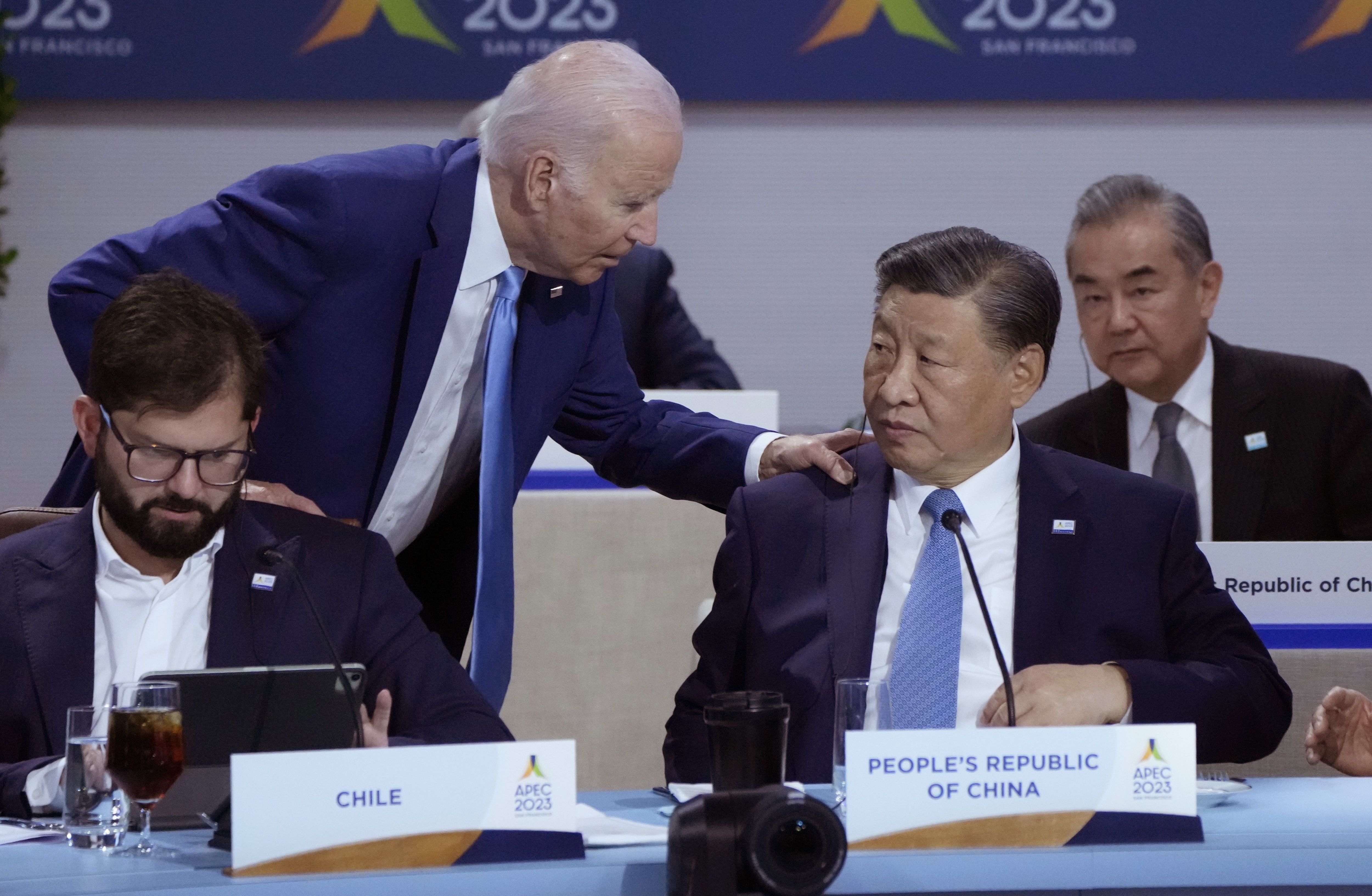A group of nearly five dozen progressive American and Japanese lawmakers are calling on President Biden to employ a “robust diplomatic approach” to ease tensions between the U.S. and Taiwan and China, and to avoid what they view as increasing potential for conflict in the Taiwan Strait.
“A potential conflict would be disastrous, and we remain concerned that the possibility remains unacceptably high,” the lawmakers said in a letter to the president on Friday. “Hostilities would produce grave harm to the physical, economic, and social well-being of the people of the United States and Japan, the people of Taiwan and China, and the most vulnerable and disadvantaged people across the world.”
The lawmakers’ letter, led by the Congressional Progressive Caucus in the U.S. and the Progressive Caucus Japan in that country’s Diet, comes as Beijing has increasingly asserted its military prowess around Taiwan, with China’s President Xi Jinping restating the importance of reunifying Taiwan with the Chinese mainland. Meanwhile, Taiwan’s new president, Lai Ching-te, who has in the past been a fierce proponent of Taiwan’s independence, has since moderated his views, voicing support for the status quo, saying that “Taiwan is already an independent sovereign country."
The CPC, PCJ letter says that the recent $8 billion military package authorized for Taiwan should be accompanied by a “robust diplomatic approach” that prioritizes “easing mutual misperceptions and misunderstandings that can undermine long-standing diplomatic agreements and precipitate violent military conflicts.”
Rep. Mark Takano (D-Calif.), one of the letter’s signatories, said in a press call on Friday that it’s important for progressives to “call out” China’s aggressive regional behavior, but added, “The fact that many members of both the CPC and PCJ are speaking with one voice in this letter is a testament to our mutual commitment to peace and stability,”
















